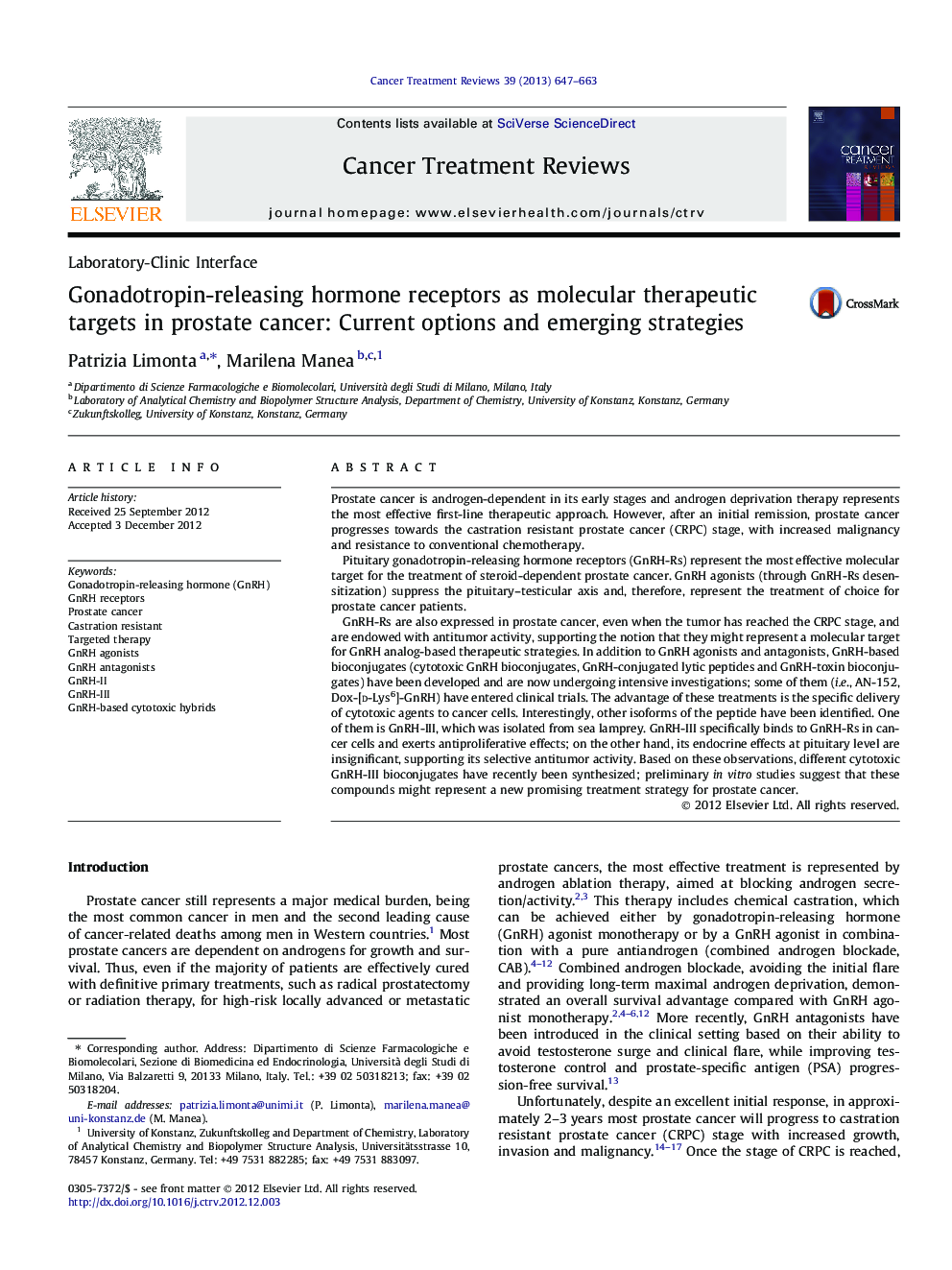| کد مقاله | کد نشریه | سال انتشار | مقاله انگلیسی | نسخه تمام متن |
|---|---|---|---|---|
| 6190565 | 1257386 | 2013 | 17 صفحه PDF | دانلود رایگان |
Prostate cancer is androgen-dependent in its early stages and androgen deprivation therapy represents the most effective first-line therapeutic approach. However, after an initial remission, prostate cancer progresses towards the castration resistant prostate cancer (CRPC) stage, with increased malignancy and resistance to conventional chemotherapy.Pituitary gonadotropin-releasing hormone receptors (GnRH-Rs) represent the most effective molecular target for the treatment of steroid-dependent prostate cancer. GnRH agonists (through GnRH-Rs desensitization) suppress the pituitary-testicular axis and, therefore, represent the treatment of choice for prostate cancer patients.GnRH-Rs are also expressed in prostate cancer, even when the tumor has reached the CRPC stage, and are endowed with antitumor activity, supporting the notion that they might represent a molecular target for GnRH analog-based therapeutic strategies. In addition to GnRH agonists and antagonists, GnRH-based bioconjugates (cytotoxic GnRH bioconjugates, GnRH-conjugated lytic peptides and GnRH-toxin bioconjugates) have been developed and are now undergoing intensive investigations; some of them (i.e., AN-152, Dox-[d-Lys6]-GnRH) have entered clinical trials. The advantage of these treatments is the specific delivery of cytotoxic agents to cancer cells. Interestingly, other isoforms of the peptide have been identified. One of them is GnRH-III, which was isolated from sea lamprey. GnRH-III specifically binds to GnRH-Rs in cancer cells and exerts antiproliferative effects; on the other hand, its endocrine effects at pituitary level are insignificant, supporting its selective antitumor activity. Based on these observations, different cytotoxic GnRH-III bioconjugates have recently been synthesized; preliminary in vitro studies suggest that these compounds might represent a new promising treatment strategy for prostate cancer.
Journal: Cancer Treatment Reviews - Volume 39, Issue 6, October 2013, Pages 647-663
